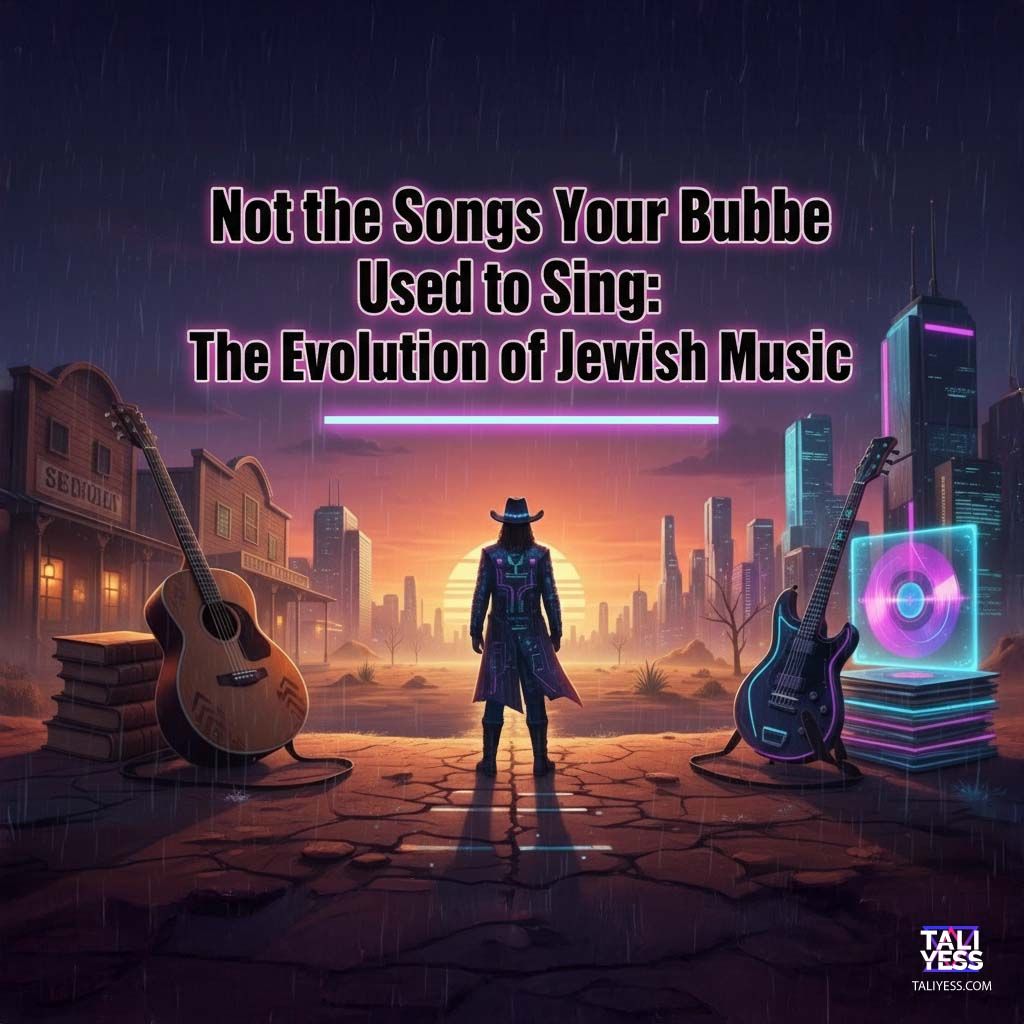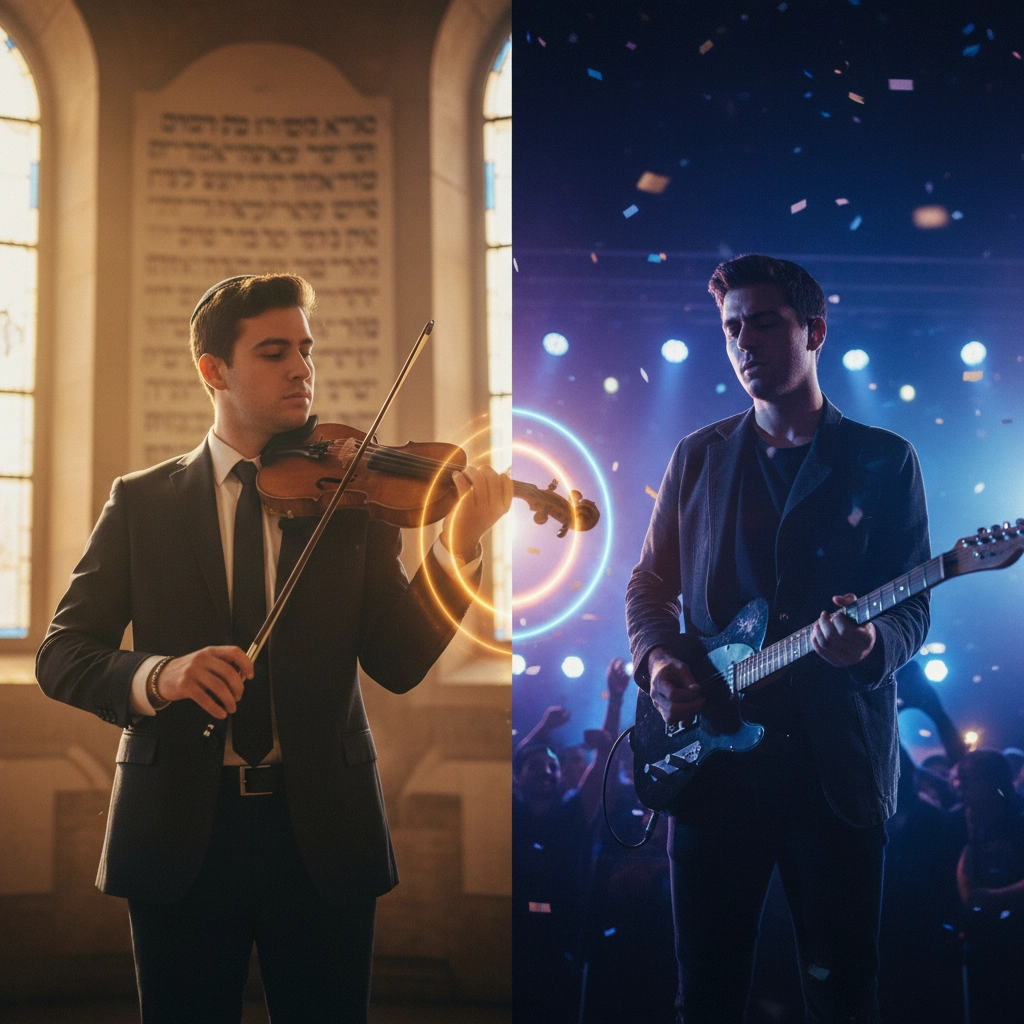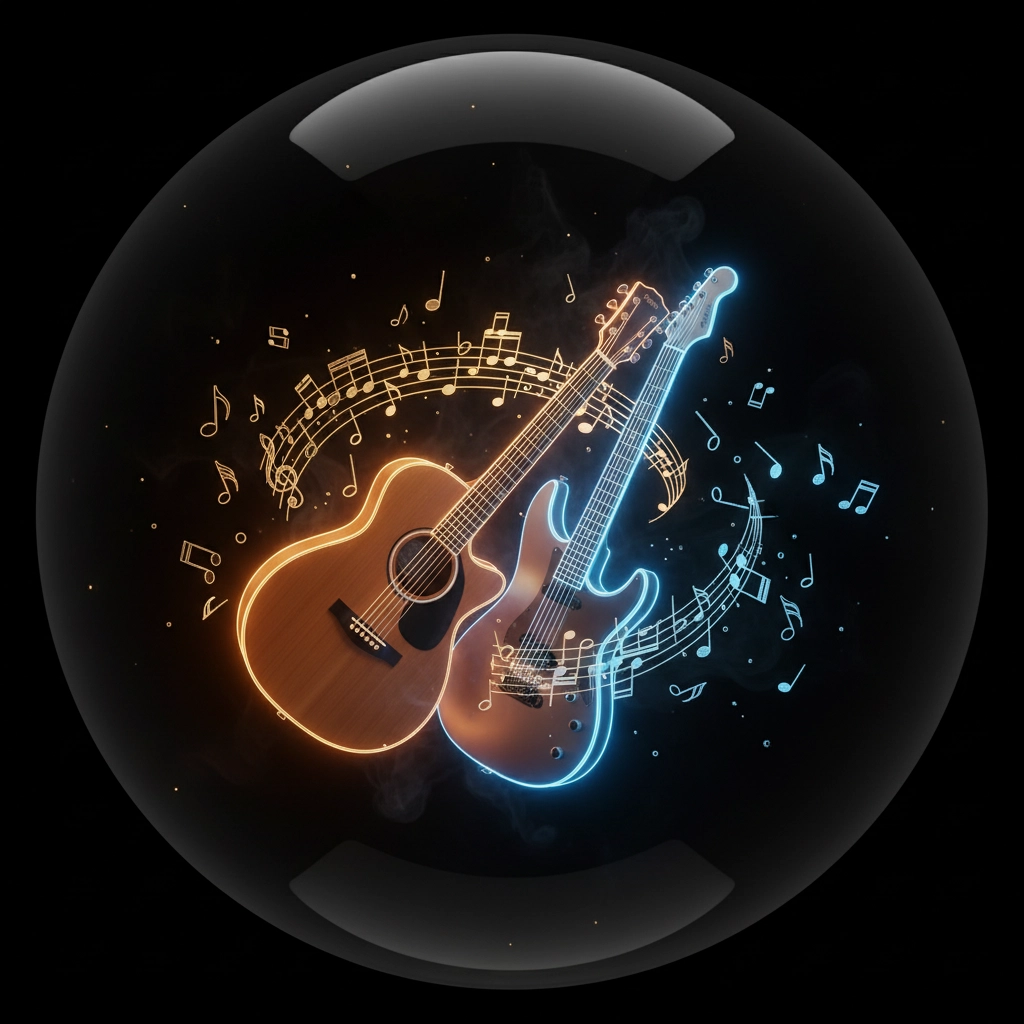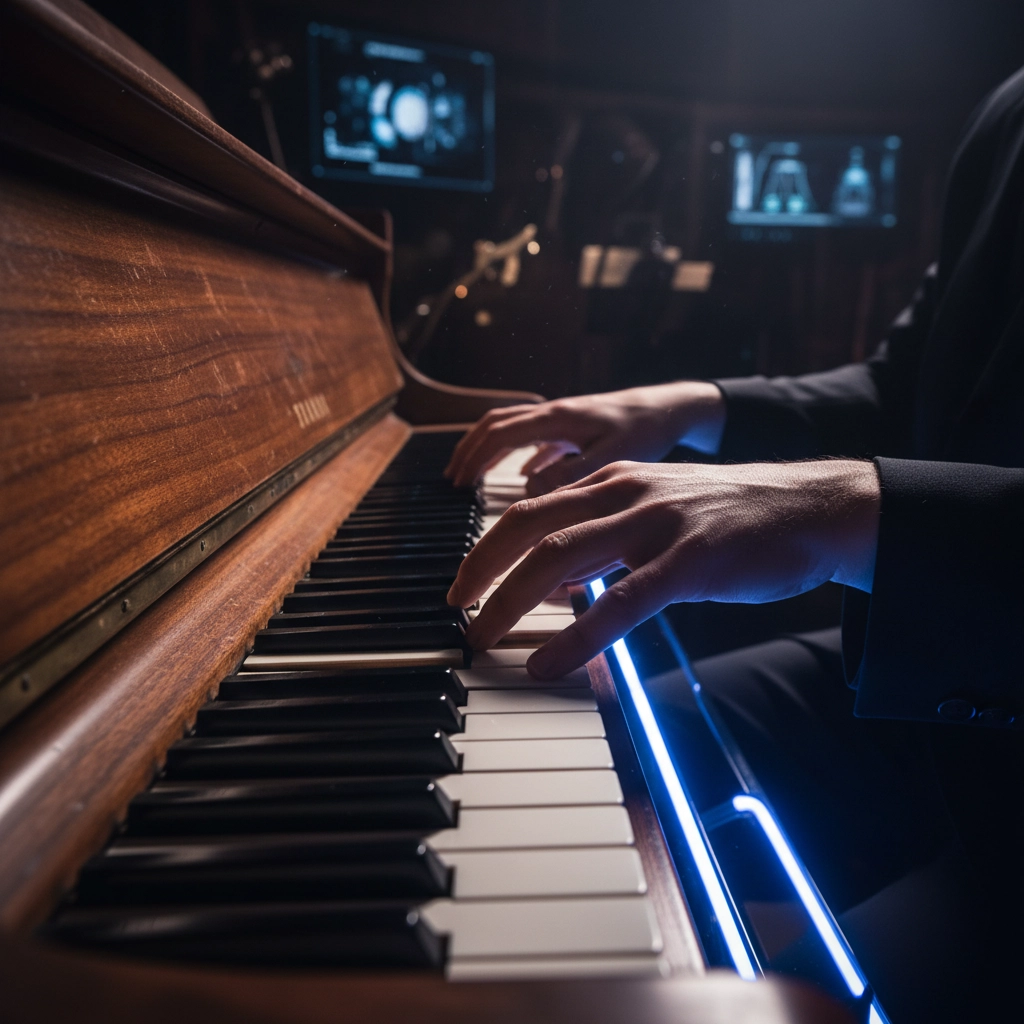
Not the Songs Your Bubby Used to Sing: The Evolution of Jewish Music
If you're a Jewish musician, parent, or music lover feeling pulled between honoring centuries-old traditions and exploring modern sounds, you're not alone. This tension touches the heart of many who love both the ancient niggunim passed down through generations and the raw authenticity of contemporary genres like country rock.
The good news? You don't have to choose just one side. Here are ten essential insights to help you navigate this musical journey with confidence and authenticity.
1. The Tension You Feel Is Completely Valid
That internal struggle between traditional Jewish music and modern genres isn't a character flaw: it's a sign of someone deeply connected to both their heritage and the world around them. Traditional Jewish music carries the weight of history, spirituality, and community connection. Modern music offers fresh ways to express faith, emotion, and contemporary experience.
When you feel torn, remember that this tension has existed throughout Jewish history. Each generation has wrestled with how to preserve tradition while staying relevant to their time and place.

2. Authenticity Matters More Than Perfect Adherence
The most powerful music: whether traditional or modern: comes from an authentic place. A heartfelt country rock song about faith can carry as much spiritual weight as a perfectly executed traditional melody if it comes from genuine experience and belief.
What makes music "Jewish" isn't just the style or language: it's the values, stories, and spiritual connection woven into the sound. Torah values like justice, compassion, and seeking truth through learning Torah and keeping Hashem's Mitzvos can infuse any genre with Jewish authenticity. As the Jewish music legend Abie Rotenberg phrased it in his song "We've Got The Music II" on his iconic 'Journeys Volume 5' album:
"It Simply Cannot Be Foretold - How Music's Future will UnfoldThough Some would See it Stay the Same - Its Nature is to Grow and ChangeBut One Thing We Must Keep in Mind - a Jewish Song of any KindIs Only Precious If and When - It Brings us Closer to Hashem"
3. Modern Instruments Can Carry Ancient Messages
There's nothing inherently un-Jewish about electric guitars, drums, or contemporary production techniques. These are tools for expression, not barriers to tradition. The key is what message you're conveying and how you're using these tools to connect with others.
Traditional instruments like the shofar or violin have their own power and place, but modern instruments can carry ancient wisdom to new audiences who might never step into a synagogue.
4. Your Family's Reaction Might Surprise You
Many people avoid exploring modern Jewish music because they're worried about family reactions. Back in the day they would say "sounds goyish" if it didn't sound like a Niggun from the Shtetl. But you might be surprised how open relatives become when they hear authentic, respectful music that clearly comes from a place of faith and cultural pride.
Start small. Share one song that blends traditional themes with modern sounds. Let them hear the Torah values and Jewish identity shining through the contemporary packaging.

5. There's Room for Both in Your Musical Life
You don't have to abandon traditional Jewish music to explore modern genres: or vice versa. Many successful Jewish musicians maintain deep connections to traditional music while pioneering new sounds.
Consider creating different spaces for different musical expressions. Maybe the Friday night Shabbos Tish is for traditional Shabbat melodies, while Sunday afternoon is for writing that country rock ballad about strengthening your relationship with Hashem or that rap about a concept you learned at a Shiur over Shabbos.
6. Modern Music Can Actually Deepen Traditional Understanding
Exploring how to express Jewish themes through modern music often leads to deeper study of traditional texts and concepts. When you're trying to write a song about Teshuvah (repentance) in a contemporary style, you'll find yourself diving deeper into the concept than you might during routine study.
This creative process can illuminate traditional teachings in fresh ways, making ancient wisdom feel immediate and relevant.
7. Community Connection Doesn't Require Musical Conformity
Staying connected to Jewish community doesn't mean you have to limit your musical expression to what's traditionally expected. Many communities are more open to musical diversity than you might think, especially when the music clearly celebrates Jewish values and experiences.
Consider sharing your music at appropriate community events. A Chol Hamoed reflection about Yom Tov in a country rock style might be exactly what someone needs to hear.

8. Evolution Is Part of Jewish Tradition
Jewish tradition has always evolved while maintaining its core. The Niggunim we consider "traditional" today were once innovative expressions of their time. Hasidic Rebbes created new melodies to help their followers connect with the divine in fresh ways. If you analyze the melodic scales that these are written in, you will find that they took the form of the very melodies that were popular geographically when they were written. In fact, a famous old-country song "Nye Zheritzi Chloptzi" that became upbeat Chabad Niggun used be one of the songs that were sung by Chassidim on their way to see the Mitteler Rebbe (2nd Chabad Rebbe) were about finding Russians Inns where there will be vodka.
Nye Zhuritze Chloptzi
Transliteration: Nye zhuritzi chloptzi shtoh s'nami budiet mi paidem nuh karchunki tam ie vodka budiet.
Translation: Don't worry, fellows, about what will become of us. We will travel to an inn; over there will surely be vodka.
You're part of that ongoing tradition of innovation within continuity. Your contemporary Jewish music piece could very well be tomorrow's cherished tradition.
9. Spiritual Connection Transcends Musical Style
The goal of Jewish music: whether traditional or modern: is often to create spiritual connection, express faith, and build community. These outcomes can happen through any musical style that's approached with intention and respect.
A three-chord country song about finding God in everyday struggles can be as spiritually powerful as an elaborate traditional composition, if it speaks truth and touches hearts.
10. Start Where You Are, Not Where You Think You Should Be
Don't wait until you've "mastered" traditional Jewish music before exploring modern expressions, or until you're a "really good" musician to honor tradition. Lucky for you, in the Jewish music world there is a concept called "Good Enough". In other words, start where you are right now, with whatever skills and interests you have. You will attract bigger and better crowds and venues as you get better. Hashem will ultimately guide you and make things happen for you if this is what you are made to do.
Maybe that means taking a traditional melody and giving it a contemporary arrangement. Maybe it's writing original lyrics about Jewish experience over modern chord progressions. The important thing is to begin authentically, and not to wait around to do it. Time is fleeting and as you age you will wish you had started earlier.
Finding Your Own Path Forward
The tension between traditional and modern Jewish music doesn't have to paralyze you: it can inspire you. This creative tension has produced some of the most meaningful and innovative music in Jewish history.
Your unique perspective, musical influences, and spiritual journey all matter. The Jewish community needs voices like yours, whether you're drawn to preserve ancient melodies, pioneer new sounds, or find creative ways to blend both approaches.
Remember, music is a language of the soul. Whether you're expressing that soul through time-honored traditions or contemporary innovations, what matters most is that your expression is honest, respectful, and connected to something larger than yourself.
Ready to explore how traditional Jewish themes can find new life through modern music? Check out Tali Yess's approach to blending Torah values with country rock, or discover how authentic Jewish identity can shine through contemporary sounds.
Your musical journey doesn't have to fit anyone else's expectations. Trust your instincts, honor your heritage, and let your authentic voice emerge through whatever style feels true to who you are.